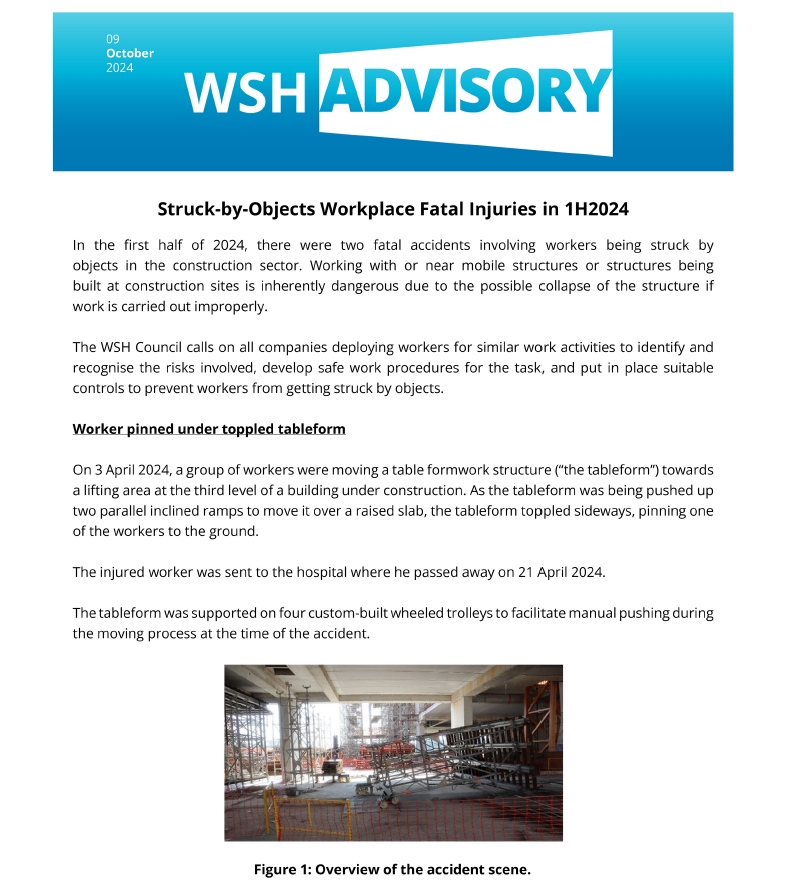About Design for Safety
Learn about Design for Safety (DfS) and the relevant laws and industry standards. Understand the duties of the various stakeholders involved.
Definition: Design for Safety
Design for Safety (DfS) is the process of identifying and reducing safety and health risks through good design at the conceptual and planning phases of a project.
Laws and Industry Standards
As a developer or designer, you are expected to comply with Singapore's WSH laws. You should pay particular attention to:
- WSH (Design for Safety) Regulations 2015
- WSH (Construction) Regulations 2007
- WSH (Risk Management) Regulations
You should also observe the WSH Guidelines on Design for Safety.
Stakeholders and Duties
Developers
- Work together with the designer to ensure foreseeable design risks are eliminated or reduced.
- Communicate foreseeable design risks, allocate sufficient time and appropriate resources for designers and contractors to perform their duties.
DfS Professionals
- Convene DfS Review Meetings on behalf of the developer.
- Keep an updated copy of DfS Register.
- Provide all relevant information on each foreseeable risk identified and its mitigation to the developer.
Designers
- Ensure foreseeable design risks are eliminated or reduced through the design plan.
- Ensure collective protective measures are taken to manage any residual design risks.
- Ensure all relevant information on design, construction and maintenance are available to stakeholders.
Contractors
- Inform developer or main contractor of any foreseeable risks.
- Provide all relevant information and ensure persons (e.g. subcontractors) hired are competent to carry out their duties.
- Carry out risk assessments to mitigate risks.
- Ensure safety during the construction phase.
Owners
- Keep a copy of the DfS Register.
- Communicate all foreseeable risks to persons carrying out maintenance and future works.
- Hand over DfS Register to future owners.
Watch the DfS Video below to learn more about the various stakeholders involved in a construction project and how they can work together to improve WSH outcomes through DfS.






